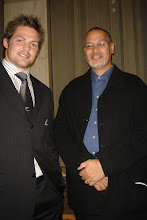One of the chiefs at Waitangi shook hands with Hobson and commented that he was sick and would die soon. Hobson did in deed suffer a stroke and was effectively laid up for several months until he died.
He did manage to make some crucial decisions. He annexed the South Island by ‘right of discovery’ which conveniently allowed
We’ve discussed the fact that it may also have been easy to do because there were so few Ngai Tahu around to negotiate with. Despite this annexation the treaty was still taken south and was signed at three sites in the
 The other decision was to move the capital south to
The other decision was to move the capital south to
This was at the invitation of Ngati Whatua who conveniently acquired Pakeha who would allow them to trade giving them economic security and ensured their safety from the encroachments of other Iwi.
At first the relationship with Maori was relatively quiet. Various Iwi sought out the Pakeha to sell land, seeking the same advantages that Ngati Whatua had acquired. Crown pre-emption meant land could only be transferred to the Government.
Reluctance to sell to Hobson or his replacement Shortland, left the Government short of cash.
In other parts of the Colony the New Zealand Company sites were also struggling as disputes over what their agents had actually purchased limited their expansionist ambitions.
Whanganui and New Plymouth were also struggling as Maori who had left these areas returned because ironically the presence of Pakeha made the areas safe for them to re-establish Ahi Kaa over these lands.
 At Nelson settler became increasingly unhappy about the lack of land. They claimed the nearby Wairau Plains. This was claimed by right of conquest by Ngati Toa.
At Nelson settler became increasingly unhappy about the lack of land. They claimed the nearby Wairau Plains. This was claimed by right of conquest by Ngati Toa.
When Company surveyors had their pegs removed and their Raupo huts destroyed the settler decided to establish the ‘rule of law’ and a Magistrate issued an arrest warrant for Te Rauparaha. I’ve already described the tragically comic events that followed and the utu that saw 17 settlers executed by Te Rangihaeata.
Settlers called Fitzroys decision pusillanimous, we would probably see it as realistic. A traditional approach to the death of so many settlers would normally have seen the might of
It was a tacit acknowledegement that outside the areas of settlement,




No comments:
Post a Comment